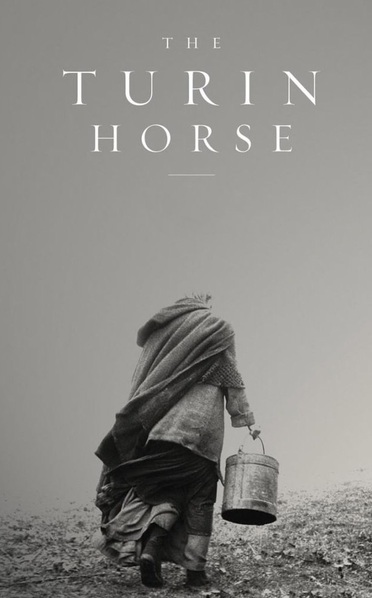










1889. German philosopher Friedrich Nietzsche witnessed the whipping of a horse while traveling in Turin, Italy. He tossed his arms around the horse's neck to protect it then collapsed to the ground. In less than one month, Nietzsche would be diagnosed with a serious mental illness that would make him bed-ridden and speechless for the next eleven years until his death. But whatever did happen to the horse? This film, which is Tarr's last, follows up this question in a fictionalized story of what occurred. The man who whipped the horse is a rural farmer who makes his living taking on carting jobs into the city with his horse-drawn cart. The horse is old and in very poor health, but does its best to obey its master's commands. The farmer and his daughter must come to the understanding that it will be unable to go on sustaining their livelihoods. The dying of the horse is the foundation of this tragic tale.
| János Derzsi | Ohlsdorfer |
| Erika Bok | Ohlsdorfer's daughter |
| Mihály Kormos | Bernhard |
| Ricsi | Horse |
| Mihály Vig | Composer |
| Lajos Kovács | Bernhard (voice) |
| Mihály Ráday | Narrator (voice) |
| Fred Kelemen | Cinematographer |
| Ágnes Hranitzky | Editor |
| László Rajk | Production Design |
| Yann-Eryl Mer | first assistant director |
| Nick Biscardi | commentary re-recordist |
| János Csáki | Sound Recordist |
| Marcus Pohlus | steadicam operator |
| Robert Patzelt | steadicam operator |
| Csaba Erös | Sound Recordist |
| Tilman Büttner | steadicam operator |
| Gábor ifj. Erdélyi | Sound mixer |
| István Pergel | Sound Recordist |
| Miklós Hajdu | Gaffer |
| Drew Weir | voice recordist |

